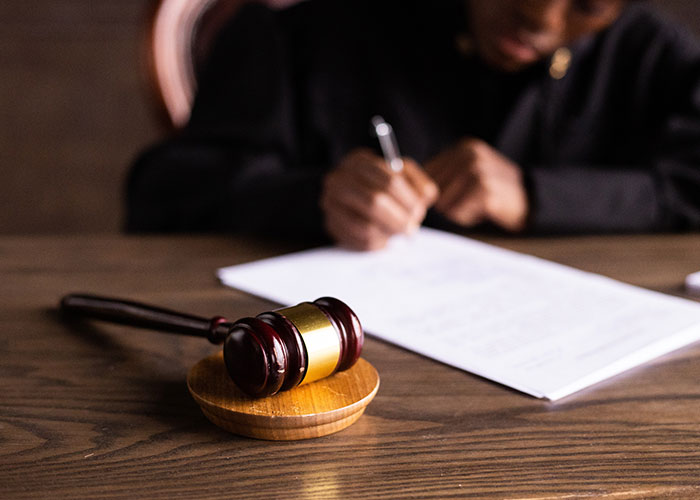Landlord Insists Tenants Restore Garden, Gets Shocked When It’s Just Dirt Left Behind
But when a landlord asked tenants to take out alterations they made in the yard of a rental property, it turned into an unexpected day in court—and an even more surprising outcome. A couple who had taken care of an undeveloped strip of dry earth and had converted it into a green patch starved their new landlord. However, his demand that they “restore all alterations” led to the yard being returned to its former barren condition, an action which he later claimed amounted to criminal damage to property.
The case went to small claims court, but in a twist of luck for the tenants, their preparation and record-keeping paid off. With photographic proof of what the property looked like before, as well as written instructions from the landlord, the couple won. The judge disregarded the landlord’s arguments and went so far as to order the full return of their security deposit. Key Tenant Rights, Obligations of Landlord, and Legal Consequences of Property Modification in a Rental Agreement: This case imparts knowledge on important issues in renting context.
Tenants who take care of and improve the property are a landlord’s dream. However, not everyone feels that way

A guy shared how his new landlord tried to sue him and his boyfriend for following his orders to the letter





The new landlord was incredibly controlling, the complete opposite of the old one













The tenant proved how vital it is to keep a digital paper trail in case things go south

Navigating Tenant Rights and Landlord Obligations
The story illustrates how misunderstandings over property modifications can escalate, underscoring the importance of legal knowledge and thorough documentation. Disputes between tenants and landlords are not uncommon, but they often hinge on the clarity of lease agreements and communication.
1. Tenant Rights and Modifications
Tenant rights vary by jurisdiction, but in most cases, landlords cannot penalize tenants for changes made with prior approval. According to Nolo’s Guide to Landlord-Tenant Law, modifications that enhance property value—such as landscaping or structural upgrades—are often considered permissible, provided they are approved in writing. In this case, the tenants had secured permission from the original landlord, which played a crucial role in their court victory.
When a new landlord acquires a rental property, they inherit the terms of the existing lease, including any agreements made by the previous landlord. Tenants are advised to retain copies of all written approvals for modifications, as they can serve as crucial evidence in potential disputes. For landlords, it is essential to review and honor pre-existing agreements to avoid legal entanglements.
2. Security Deposits and Property Conditions
The landlord’s attempt to withhold the security deposit highlights a common area of contention in rental agreements. Under laws like the California Civil Code Section 1950.5, landlords can only deduct from security deposits for specific reasons, such as unpaid rent or damages beyond normal wear and tear. Courts often side with tenants when landlords cannot substantiate their claims with clear evidence of tenant-caused damage.
In this case, the tenants’ decision to document the property’s original state proved critical. Photos taken at move-in and the landlord’s written instructions to “remove all modifications” were compelling evidence that the tenants had complied with their obligations. This aligns with legal advice from FindLaw, which emphasizes the importance of move-in and move-out checklists to protect tenant rights.
3. Ethical Considerations in Landlord-Tenant Relationships
Beyond legal compliance, ethical considerations are integral to maintaining positive landlord-tenant relationships. Tenants who invest in improving rental properties, such as by landscaping or adding features, demonstrate goodwill and contribute to property value. Rejecting such efforts—or worse, penalizing tenants for them—can damage trust and deter future renters.
Landlords also bear responsibility for clear and respectful communication. The landlord’s aggressive demands and dismissive attitude likely undermined his credibility in court. As noted by the American Apartment Owners Association (AAOA), fostering mutual respect is key to avoiding disputes and retaining long-term tenants.
4. Lessons for Renters and Landlords
This case serves as a cautionary tale for both renters and landlords. Tenants should:
- Document everything: Take photos before and after any modifications.
- Secure written approvals: Obtain explicit consent for any changes to the property.
- Understand local laws: Familiarize yourself with state-specific tenant rights.
Landlords, on the other hand, should:
- Honor existing agreements: Review inherited leases to ensure compliance.
- Communicate professionally: Avoid confrontational or vague directives.
- Protect against frivolous claims: Keep detailed records and conduct property inspections.
A Victory for Tenant Advocacy
This case demonstrates the power of preparation and documentation in tenant-landlord disputes. By knowing their rights and presenting clear evidence, the tenants not only defended themselves against unjust accusations but also highlighted the importance of fair treatment in rental agreements. The incident underscores the value of tenant protections, transparent communication, and ethical practices in the rental housing market.
For renters and landlords alike, the lesson is clear: clarity and mutual respect can save both parties from unnecessary legal battles and foster a healthier rental ecosystem.
Here’s what some internet users had to say about the story






